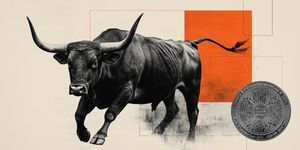On April 15, 2025, KBS1TV's 'Morning Forum' featured Park Il-joon, a prominent figure in the Korean music scene known as a first-generation multicultural singer. During the broadcast, which focused on the theme 'The Tears of Korea's First Generation Multicultural Singer,' Park shared his candid thoughts about his upbringing and identity.
Reflecting on his past, Park stated, "In our time, there was no expression like 'multicultural'; it was referred to as 'mixed blood.'" This sentiment highlights the evolution of terminology surrounding multicultural identities in Korea. He recounted how he was often labeled with terms like 'coal briquette' and 'stone charcoal' due to his skin color, revealing the challenges he faced growing up.
Park Il-joon, whose real name is Park Yang-eop, was born to an American father and a Korean mother. He explained that his Korean mother, whom he affectionately referred to as his "Yankee mother," had a complex relationship with his biological heritage. She placed him in an orphanage when he was about 100 days old, as she felt unable to raise him after his hair began to curl, a sign of his mixed heritage. Park recounted, "People told my Yankee mother that 'Gaettongi' was eating well at the orphanage, so she went to see him and called him 'Mommy,' which is how I was raised." This poignant story illustrates the love and connection he eventually formed with his adoptive mother.
Despite his success in the music industry, Park faced significant challenges, particularly regarding his marriage. He revealed that his mother-in-law was initially opposed to their union, stating, "She didn't even hold a wedding ceremony for us." The disapproval stemmed from his non-Korean background and his career as a singer. However, after his wife became pregnant, his mother-in-law's attitude shifted, leading to acceptance.
During the broadcast, Park also shared his experiences with music, expressing a desire to sing trot, a popular genre in Korea. He noted, "I wanted to sing trot, but I thought the clothes didn't fit me. Even now, when I sing, I feel giddy." He acknowledged the difficulty of conveying emotions like love, separation, and sorrow within the short span of a three-minute song, stating, "It's harder for me because I've been doing pop ballads." This struggle reflects the broader challenges artists face in adapting to different musical styles.
Park Il-joon first rose to fame in 1977 with his cover of the pop song 'Unchained Melody,' titled 'Oh! Jin-ah.' His success as a multicultural mixed-race singer marked a significant moment in Korea's music history, paving the way for future artists with diverse backgrounds. The challenges he faced, both personally and professionally, resonate with many who have navigated similar paths.
As he reminisced about his past, Park expressed a bittersweet feeling about how society views multicultural identities today. "Now we call it multicultural, but in the past, it was just mixed blood," he said, reflecting on the progress made in societal acceptance yet acknowledging the lingering stigmas. His story serves as a reminder of the importance of understanding and embracing diverse backgrounds in today's world.
Park's journey is not just a personal narrative; it encapsulates the broader cultural shifts occurring in Korea regarding race and identity. As a first-generation multicultural singer, he has become a symbol of resilience and acceptance, inspiring many to embrace their unique heritages. His experiences shed light on the ongoing conversation about multiculturalism in Korea and the challenges that still exist.
In conclusion, Park Il-joon's appearance on 'Morning Forum' not only highlighted his musical journey but also opened a dialogue about the complexities of identity in a multicultural society. His candid reflections on his upbringing and the obstacles he faced resonate with many, making his story a powerful testament to the evolving narrative of multiculturalism in Korea.






